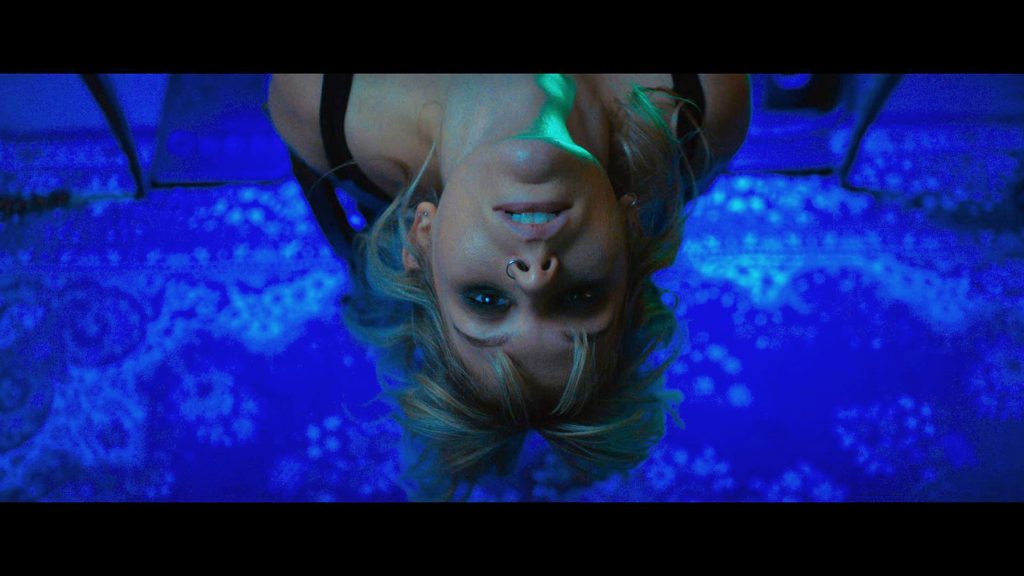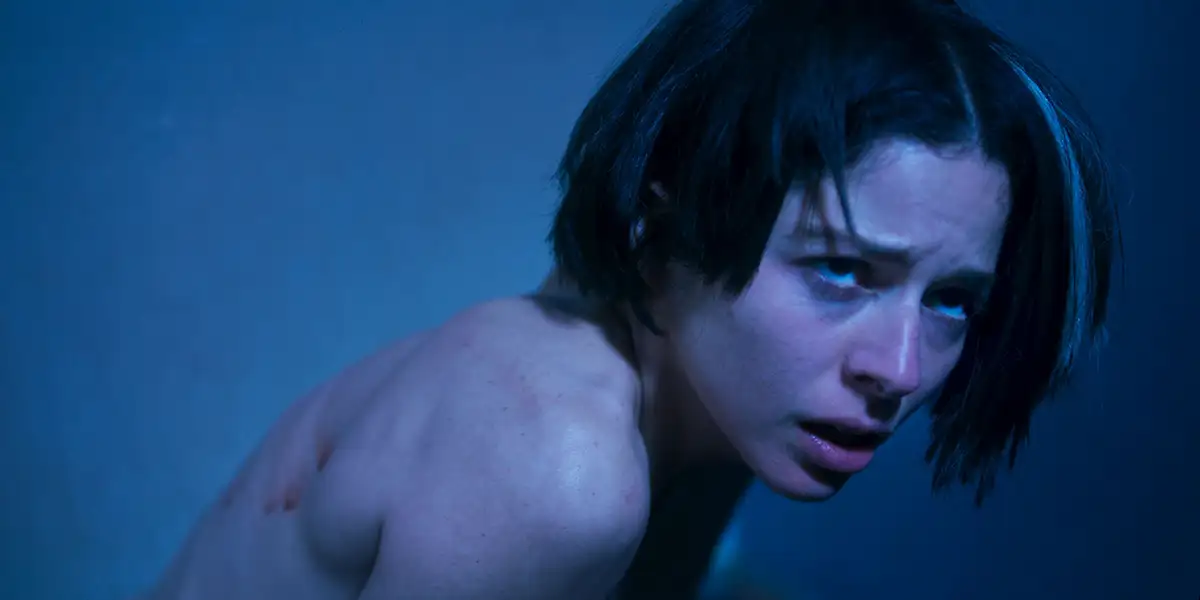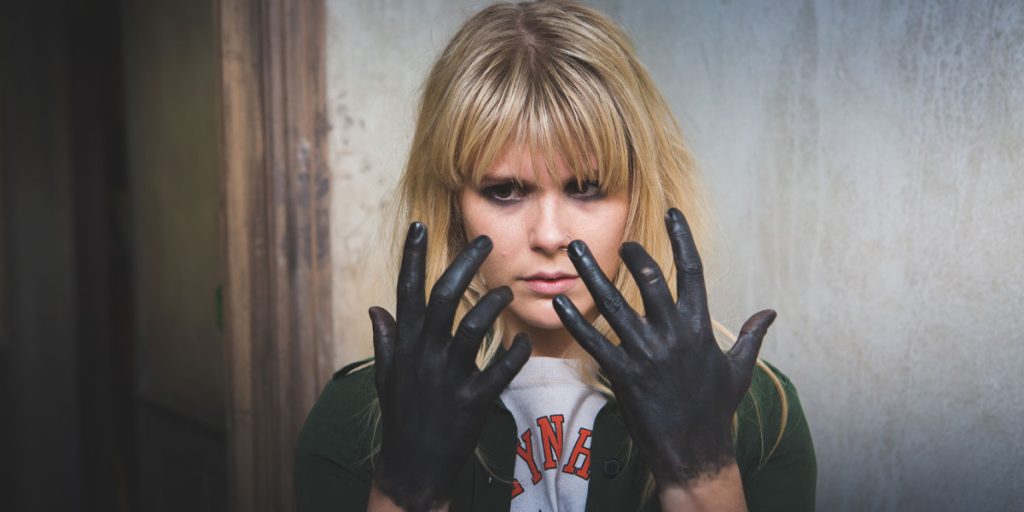Peripheral thrills and chills with hallucinogenic sequences of technological terror, but the film fails to piece together a coherent narrative and thematic vision.
Opening images of violent protests greet our eyes with apocalyptic fury, shots of streets on fire and police clad in riot gear that feel chillingly familiar, an unexpected reflection of the current state of affairs watching Peripheral in 2020. We come to learn that these protests erupted from Bite the Hand, a bestselling novel written by Bobbi Johnson (Hannah Arterton) that catapulted her into renegade celebrity status after launching a brief populist uprising among Britain’s disillusioned youth. Despite the overwhelming success of her first novel, we meet Bobbi in the midst of financial struggles as her home utilities shut off, and in exchange for an advance and her bills paid, she agrees to begin writing her second novel.
However, instead of writing on her trusty typewriter, her publisher Jordan (Belinda Stewart-Wilson) requests that she use a new, high-tech computer that enhances literary efficiency to complete the novel. Delivered in large boxes and put together with IKEA-like instructions in an amusing sequence, the new computer features experimental AI writing software that rewrites Bobbi’s novel, changing the gender of her protagonist and worsening her stress with a countdown clock. Meanwhile, her life is thrown into further chaos with macabre videotapes from an obsessed fan, the return of an ex-boyfriend, and mysterious drugs that turn her fingertips and hands black. Determined to finish the novel, Bobbi descends into a bizarre self-journey of writer’s block, drug-fueled hallucinations, and a technological invasion of the mind and body, revealing shocking truths about the publishing industry and art of writing.

Peripheral’s most compelling moments are its most bizarre, from mind-bending drug trips to human-machine sexual interaction to bodily transformations. It’s clear to see influences from other related works like Black Mirror’s technological paranoia, Naked Lunch’s narcotic writer narrative, and Videodrome’s tech-body horror and static noise from VHS tapes, but Peripheral is plenty unique enough to be its own beast. With what seems like a modest budget, the film imagines psychedelic sequences of intense color, violent clashes of reds and blues that add a visually surreal dimension captivating the viewer from a purely experiential perspective and entering into an escape from reality. It’s a film that properly feels like a dream, even in its lucid moments where something clearly feels off. Equally absorbing is Hannah Arterton’s lead performance, adding a palpable paranoia, curiosity, and enigmatic mystery to Bobbi as she tries to make sense of the strange events her life drifts into.
Unfortunately, Peripheral collapses under the weight of its narrative and thematic ambitions, suffering from a lack of coherent and meaningful direction. Seemingly just as lost and confused as Bobbi in her hallucinogenic writer’s block, the film fluctuates between a number of conceptual motifs that never quite mesh into a satisfying whole. Vague revelations about the artistic process and dark secrets of the literary world concerning topics like voice, authorship, and creative independence swirl against each other as either profound statements or manufactured nonsense, intriguing in their conspiratorial bent if undeveloped. Themes of technological invasion pose provocative scenarios from surveillance to artificial intelligence to sexual interactions, but feel a bit overwhelming in the modest 89 minute runtime, too many ideas competing for our attention that either deserve their own story, or would have best been left out for a more thematically concise feature.
Peripheral will be available digitally in the U.K. and Ireland on 3rd August, 2020.

 loudandclearreviews.com
loudandclearreviews.com
